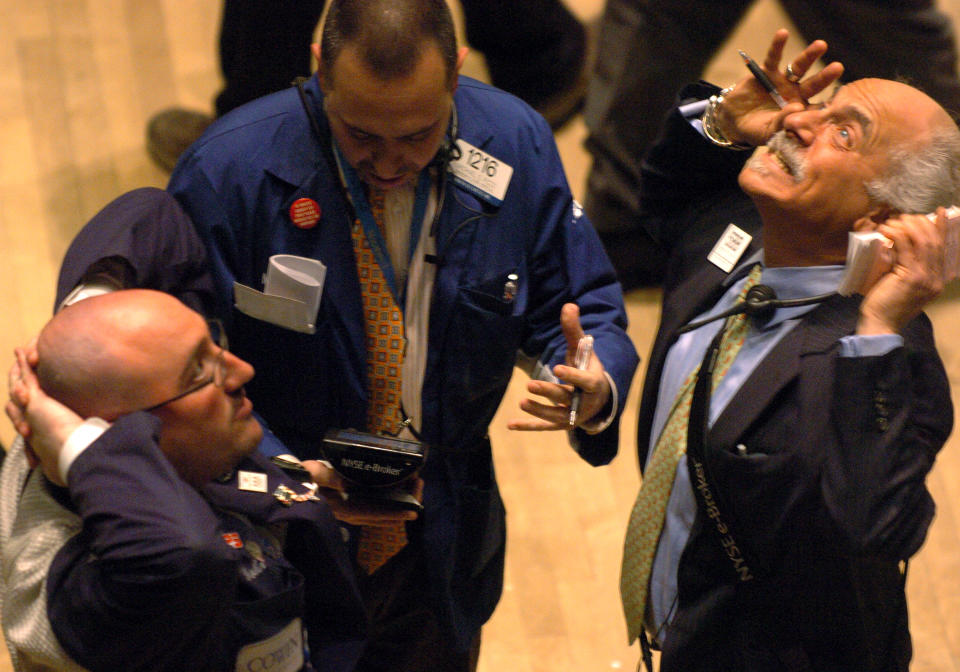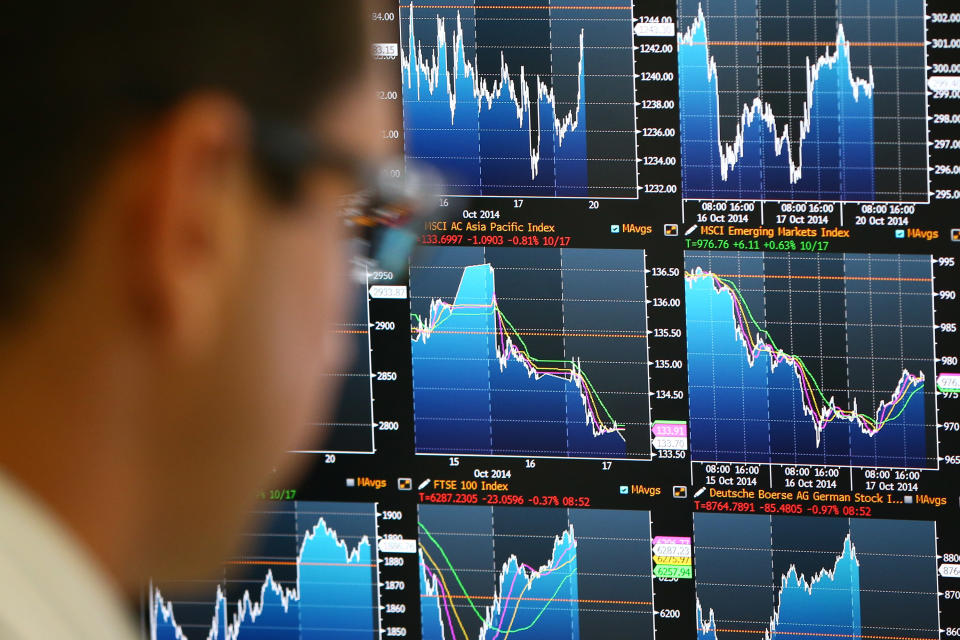This key investing metric is freaking out global markets

Global stock markets are in for a rocky ride on Thursday after recession fears caused the three main US bourses (^GSPC, ^DJI, ^IXIC) to close down 3% overnight.
The US Treasury yield curve inverted for the first since the recession on Wednesday, sparking fears that the world’s biggest economy could be heading for recession.
As well as hitting US markets, the news also sent shockwaves through Asian markets. Japan’s Nikkei 225 (^N225) trailed nearly 1.5% lower, while Hong Kong’s Hang Seng Index (^HSI), and China’s Shanghai Composite (000001.SS) were down for most of the day, recuperating to trade flat at the send of the session.
European markets are set to be choppy. The UK’s FTSE 100 (^FTSE) opened slightly lower by less than 0.1%, while Germany’s DAX (^GDAXI) and France’s CAC (^FCHI) traded flat.
The driving force is recession fears in the market, fuelled by weak data from Germany and China and a warning sign flashing red in the bond market.
Europe’s largest economy, Germany, shrunk by 0.1% in the second quarter, indicating that the US-China trade conflict and a weakening global economy have started to take their toll on the export-reliant country. Trade and the construction sector were a particular drag on growth.
Geopolitical issues are also causing panic for investors in Asia. China’s jobless rate recently hit an all-time high, not helped by the US-Sino trade war, and protests in Hong Kong continue, which are disrupting economic activity there.
This has led to investors fleeing to safe haven asset classes like bonds and gold.
In turn, this has caused a key metric — the US Treasury yield curve —to invert, sending shockwaves across the globe.
Why the yield curve is important

Investors see the US Treasury yield curve as a key metric to measure the health of not just the US economy but also the global economy. Crucially, the yield curve also acts as a barometer for the outlook of the economy.
The yield curve measures the difference in yield between 10-year and 2-year US government debt.
For the first time since the run-up to the financial crisis, the yield curve inverted on Wednesday. That meant the yield on the 10-year U.S. Treasury bond dipped below the yield on the 2-year U.S. Treasury. It means investors are charging more to lend money to the US government over the short-term than the long-term, an unusual state of affairs.
The US Treasury yield curve inverting is seen as doomsday warning for investors that a recession could be on the way.
If the yield curve is higher, it indicates investors are confident in future growth prospects for the next two years. If it inverts, that suggests investors believe the economy is going to get worse. It doesn’t mean that in a decade’s time that the economy will still be worse than it is now, but it does indicate that the outlook is not a bright one.
READ MORE: El-Erian: Negative yields 'will break things' in US economy
As Yahoo Finance’s Brian Cheung pointed out: “The yield curve inversion has a strong track record of predicting a recession; each of the last seven recessions (dating back to 1969) were preceded by the 10-year falling below the 2-year.”
Allianz chief economic adviser Mohamed El-Erian told Yahoo Finance’s On The Move that if treasury yields dip into negative territory, “I’m going to be really worried because negative yields in the US the world’s biggest financial market, will break things. The system is not built to operate with negative yields.”

 Yahoo Finance
Yahoo Finance 
